January 2018 Culture and Society
Read the articles selected in January 2018
Anti-Semitism: Learning the lessons of history
Source: https://en.unesco.org, 27 January
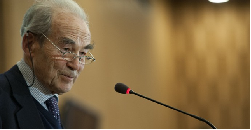
In this Day of the Memory dedicated to the lessons we can draw from history through education, the lesson most important and worthy of reflection is that education and culture without humanity are not a sufficient defense against racism and anti-Semitism.
Read more:
https://en.unesco.org/courier/correo-digital/anti-semitism-learning-lessons-history
Wie kommt der Geist in die Natur?
By Hedda Hassel Morch
Source: Die FAZ, 24 January

Even if we knew all the biochemical brain processes, the conscience would remain a mystery for scientists. In parallel, the knowledge of the laws and the structure of the universe concerns the relations and the activities of the particles, but it doesn’t open the door of the matter considered in itself.
Read more:
The Bayeux tapestry . A moving picture of war as it really is.
By Jonathan Jones
Source: The Guardian, 20 January
The Bayeux tapestry is going to go for a visit in the UK, for the willingness of the French President to underline how intertwined are the roots of Europe, that this 70-meter long comic strip illustrates, telling the Norman invasion of England in honor of both losers and winners.
“Mosaic” offers genuinely innovative storytelling
Source: The Economist, 23 January
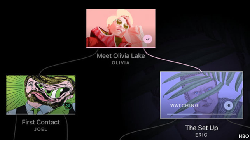
A new broadcast series by Steven Soderbergh presents an interactive version of an app for computers and smartphones where the stories are told through the different characters perspectives. A narrative way which shows how narrow-minded is our experience of the world.
David Lynch dans l’aube blême
By Antoine Duplan
Source: Le Temps, 20 January
The Short Films of David Lynch sink into the youthful formation of the artist, become film-maker discovering the sense of movement which breathes life in his painting and comes back in his short films, that look like tableaux vivants.
War on waistlines
Source: The Independent, 16 January
The history of a famous post-war female magazine in the UK shows that slimming diets are not so closely linked with a consumeristic culture, but rather with a sexism which even now is amazingly similar to the times when the floors polished by a slender body were more brilliant.
Capitalisme et christianisme
By Philippe Simonnot
Source: Le Nouvel Économiste, 12 January
The great religions have a special relation with propriety and money. The links between capitalism and Christianity sink their roots far further than Luther’s Reform and the Roman law. The propriety right, as a dominion on the earth and its inhabitants, has its origins in the Law of the Twelve Tables.
Passé/présent. Un calendier chargé…d’histoire.
By François Reynaert
Source: L’Obs, 11 January
Although we all perceive the flowing of time, time is not a truth identical for all, but a convention from historical and geopolitical reasons. From the most ancient times, humanity struggled to count the hours and the days, being aware that otherwise, the time stops.
Tauchgänge mit Aristoteles
By Martin F. Meyer
Source: Die FAZ, 17 January
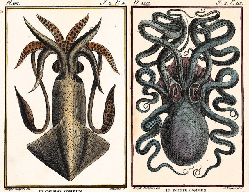
A book by the biologist Armand Marie Leroi celebrates Aristoteles as the founder of natural sciences and the compared anatomy, taking account of the amount of his scientific work on hundreds of animal and vegetable species observed in Lesbo.
Read more:
Teenagers are better behaved and less hedonistic nowadays
Source: The Economist, 10 January
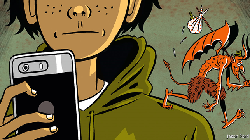
In the rich countries, young people result to be more focused on their studies and the future job prospects and less addicted to substances than in the past also because of their longer expectations of life. Easier family relations and technology protect and isolate them from harmful behaviors as well from deep relations.
Read more:
La jeunesse retrouve le goût de l’éloquence
By Marie-Estelle Pech
Source: Le Figaro, 6 January
France rediscovers the rhetoric as a subject of tertiary courses and lifelong learning for managers and employees. They have realized that among the whole knowledge which is available today we haven’t been trained to take the floor, and before the dominant language of technology, we have only to speak well.
Lessons from ancient Greek coinage
Source: The Economist, 13 December
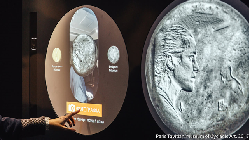
The Museum of Cycladic Art in Athens and the Alpha Bank Numismatic Collection present an exhibition from 85 ancient coins and artifacts to explore the link between money and both civilization and culture when the currency was tangible and had a human face.
Read more:
https://www.economist.com/blogs/prospero/2017/12/human-face-money
Cinco siglos después, el mundo necesita otra Reforma
By Xavi Ayén
Source: La Vanguardia, 1 January
Luther thought inspires 30 scholars of different disciplines gathered within the Hay Festival, a nomad meeting of intellectuals and writers that wonder how to make the planet safe and change the world in its fundamental dimensions, from money to education and research, from the cities to the insuppressible religion.
Info
- Pubblicato il : 05/02/2018 Modificato il : 04/04/2019

